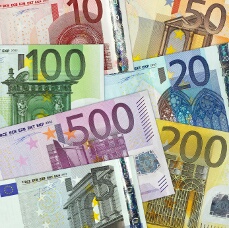
The was almost flat against some other most-traded currencies (like the Great Britain pound and the Swiss franc) and logged a sharp decline against others (including the US dollar and the Japanese yen).
The eurozone current account recorded a surplus of â¬31.0 billion in December 2016. While it was lower than the November reading of â¬36.4 billion, the actual figure was better than the median forecast of â¬28.7 billion. Yet that did not help the euro.
There are plenty of reasons that can explain such poor performance of the shared 19-nation currency. Among them are political uncertainty associated with this year’s elections in Europe and the signs that the European Central Bank is not in a hurry to taper its quantitative easing.
EUR/USD dropped from 1.0672 to 1.0606 as of 20:08 GMT today. EUR/GBP traded near its opening level of 1.08542 after rising to the daily high of 0.8588. EUR/JPY declined from 120.86 to 119.78.
If you have any questions, comments or opinions regarding the Euro,
feel free to post them using the commentary form below.